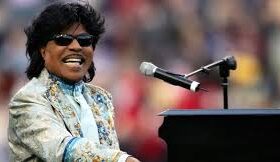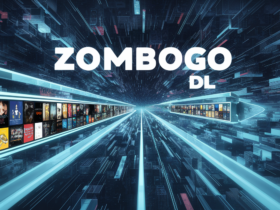In today’s rapidly evolving digital landscape, Geekzilla Redes Sociales has emerged as a powerful force that significantly influences various facets of online behavior and social media dynamics. This article delves into the intricate relationship between geek culture and social media, highlighting how the convergence of these two worlds has given rise to a unique digital ecosystem that continues to grow in prominence.
The Rise of Geek Culture in the Digital Age
Geek culture, once confined to niche communities, has exploded into mainstream consciousness, driven largely by the proliferation of the internet and social media platforms. Comic books, science fiction, gaming, anime, and fantasy genres—the pillars of geek culture—are no longer the domain of a select few. Instead, they have become integral to global popular culture, influencing trends, conversations, and even marketing strategies.
How Social Media Amplifies Geek Culture
Social media platforms like Twitter, Instagram, Facebook, and Reddit have played a pivotal role in the rise of geek culture. These platforms serve as hubs where fans can connect, share content, and engage in discussions about their favorite shows, movies, games, and comics. The hashtag phenomenon, for instance, has enabled fans to rally around specific topics, driving visibility and engagement on a global scale.
The power of influencers within geek culture cannot be understated. Influential figures, such as content creators on YouTube and Twitch, have amassed large followings by producing content that resonates with geek communities. These influencers often collaborate with brands, further intertwining geek culture with mainstream marketing.
The Economic Impact of Geek Culture
Geekzilla Redes Sociales is not just a social phenomenon; it has become a significant economic driver. The global market for geek-related merchandise, conventions, and media is worth billions of dollars, with no signs of slowing down. Major franchises like Star Wars, Marvel, and Harry Potter have leveraged their fan bases to create expansive universes that generate revenue through movies, television series, merchandise, and more.
Social media has been instrumental in this economic impact, allowing fans to stay updated on the latest releases, participate in fandoms, and purchase merchandise directly through integrated shopping features. This seamless integration of content and commerce is a testament to the influence of geek culture in the digital age.
The Intersection of Geek Culture and Digital Marketing
Brands have recognized the value of tapping into geek culture as part of their digital marketing strategies. By aligning with popular franchises or creating content that appeals to geek communities, brands can foster deeper connections with their target audiences. Gamification, easter eggs, and references to geek culture in marketing campaigns have proven to be effective in capturing the attention of this highly engaged demographic.
Case Studies: Brands That Successfully Harnessed Geek Culture
Several brands have successfully harnessed the power of geek culture to boost their digital presence:
- Coca-Cola partnered with Marvel Studios to create limited-edition cans featuring popular superheroes. This collaboration not only appealed to Marvel fans but also generated significant social media buzz.
- Lego has consistently tapped into geek culture by producing sets based on beloved franchises like Star Wars, Harry Potter, and Minecraft. These products are heavily promoted on social media, with fans eagerly sharing their builds online.
- Nike capitalized on the popularity of the anime series Naruto by releasing a limited-edition sneaker collection inspired by the show. This campaign was a hit among both sneakerheads and anime fans, leading to a surge in online engagement.
The Role of Memes in Geek Culture
Memes have become a cornerstone of geek culture, often serving as a form of commentary on current events within fandoms. Social media platforms are inundated with memes that reference everything from the latest Marvel movie to classic video games. These memes are shared widely, creating a sense of community among fans and keeping geek culture at the forefront of online discussions.
Memes also offer brands an opportunity to connect with geek communities in a lighthearted and relatable way. When done right, meme-based marketing can go viral, providing brands with organic reach and increased visibility.
Challenges in the Digital Geek Space
While the digital influence of geek culture is undeniable, there are challenges that come with it. Toxicity within online communities is a growing concern, with instances of harassment and gatekeeping marring the otherwise inclusive nature of geek culture. Platforms are grappling with how to moderate content effectively without stifling creativity and free expression.
Additionally, the commercialization of geek culture has led to concerns about authenticity. As brands increasingly seek to capitalize on this culture, there is a risk of alienating fans who value genuine passion over corporate interests. Navigating this delicate balance is crucial for brands that want to maintain credibility within geek communities.
The Future of Geek Culture on Social Media
Looking ahead, geek culture is poised to continue its dominance in the digital sphere. As virtual reality, augmented reality, and the metaverse become more integrated into everyday life, these technologies will provide new avenues for fans to immerse themselves in their favorite franchises. Social media platforms will evolve to accommodate these changes, offering even more interactive and immersive experiences for users.
The ongoing expansion of geek culture also presents opportunities for brands to innovate. By staying attuned to the latest trends and engaging authentically with fans, brands can remain relevant in this ever-changing landscape.
Conclusion
Geekzilla Redes Sociales influence on social media and digital marketing is profound and far-reaching. As this culture continues to evolve, it will undoubtedly shape the future of online interactions and consumer behavior. Brands that understand and embrace the nuances of geek culture will be well-positioned to thrive in the digital age.

















Got a Questions?
Find us on Socials or Contact us and we’ll get back to you as soon as possible.